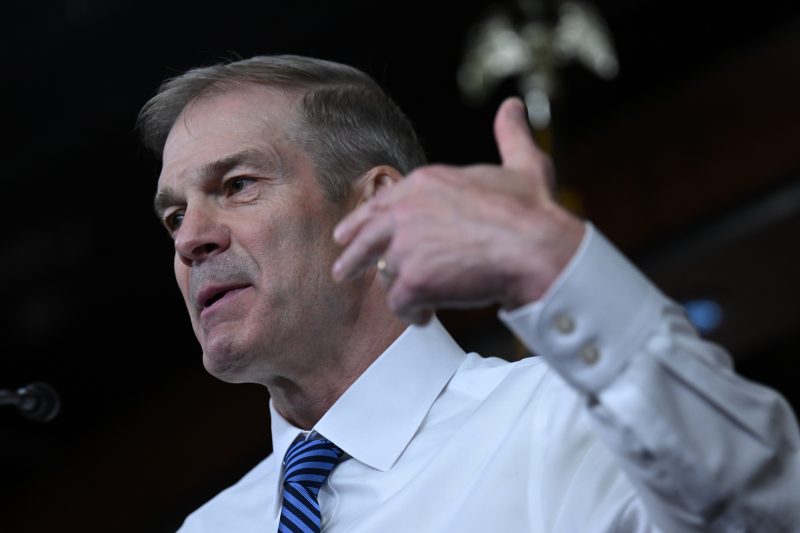
Unraveling the Mystery: Jim Jordan’s Quest to Expose Biden’s $8 Million Book Deal
In efforts to unravel alleged links between Joe Biden and an $8 million book deal, Republican Congressman Jim Jordan took a strong stance in questioning the potential conflicts of interest. The claims made by Jordan have sparked intense discussions and debate about transparency and political integrity.
Jordan’s assertions centered around the House Judiciary Committee’s review of Biden’s financial records and possible entanglements between his political influence and business dealings. The scrutiny honed in on the significant advance Biden received for his book deal, suggesting a possible avenue for corruption and undue influence on his political decisions.
The core argument posed by Jordan stems from the belief that high-value book deals may serve as a conduit for individuals to seek favors and leverage from prominent political figures. In this case, the size of Biden’s book advance raised suspicions about the motivations behind such a substantial offer.
Moreover, the timing of the book deal in relation to Biden’s political career and connections is a focal point in connecting the dots and understanding the potential implications. Jordan highlighted the need for a thorough investigation into the sources and reasons behind the lucrative arrangement, indicating that the deal could be a means to gain favor or access to Biden’s influence.
The depth of Jordan’s concerns reflects broader apprehensions within the political sphere regarding conflicts of interest and the intersection of wealth and power. The scrutiny on Biden’s book deal serves as a microcosm of a larger conversation surrounding ethics, transparency, and accountability in political leadership.
While Jordan’s efforts to connect the dots on Biden’s book deal have stirred controversy and debate, they also underscore the importance of maintaining a critical eye on potential conflicts and improprieties within the political landscape. The intricate web of relationships and financial ties that shape political decisions necessitates constant vigilance to ensure that public officials act in the best interests of their constituents rather than personal gain.
As the discourse surrounding Biden’s book deal continues to unfold, the scrutiny brought forth by Jim Jordan serves as a reminder of the ongoing need for accountability and transparency in political leadership. The quest to connect the dots on financial dealings and political influence remains a critical endeavor in upholding the integrity of our democratic institutions.
